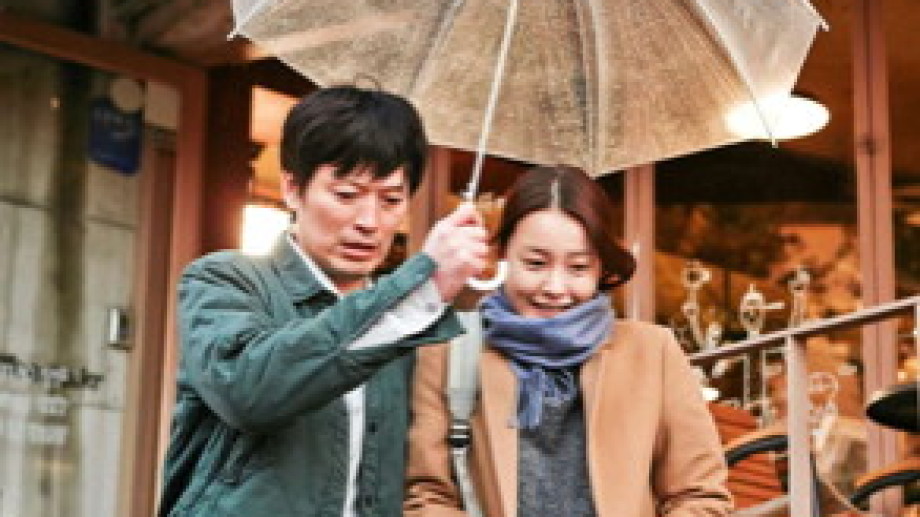
Hong Sang-soo's Our Sunhi
Laya Maheshwari is a member of the second annual Locarno Critics Academy. You can follow him on Twitter at @lazygarfield.
Asian films featured prominently in the diverse lineup at the 66th Locarno Film Festival and covered a wide spectrum of genres, from science fiction epics (Kiyoshi Kurosawa's Real) to twisted family dramas (Shinji Aoyama's The Backwater) and a documentary on a Thai village (Nontawat Numbenchapol By the River).
Two films that screened at Locarno are remarkably similar, yet subtly different in their own ways. Hong Sang-soo’s Our Sunhi depicts the consequences of a young woman moving back to her hometown, while Chang Tso-chi’s A Time in Quchi follows a young boy moving to live with his grandfather in a small village. Both films are warm-hearted and charming stories about innocent protagonists going through a tough experience that most of us can relate to, and how they are caught in a web of problems not of their making.
Our Sunhi tells the story of a pretty college student in her twenties named Sunhi who returns to her hometown and causes giant upheavals in the lives of the people who knew her, including some ex-boyfriends. A Time in Quchi is the story of Bao, a shy teenager who moves in with his recently widowed grandfather after his parents' divorce and must adjust to a new school and to village life.
The two films offer contrasting portraits that mirror each other in striking ways. Our Sunhi deals with the repercussions of returning to one’s past, facing old friends again, and trying to bring closure to certain episodes of one’s life. The film's drama arises mainly out of people from the protagonist’s past venting their latent frustration upon her reemergence in their lives. Sunhi has to make amends with a jilted lover, renew her acquaintance with a miffed professor, and catch up with a close friend. Her intentions may be innocent, but things soon get complicated and Sunhi must navigate murky interpersonal relationships.

Chang Tso-chi’s A Time in Quchi
A Time in Quchi presents the challenge of entering an entirely new environment, with few past remnants to hold onto. Bao is forced to make new friends, engage in activities he has never experienced before, and adjust to an unfamiliar lifestyle.
Sunhi is an extremely proactive person. She visits her hometown out of her own choice, and seeks people out for reunions. Bao, on the other hand, is withdrawn and reserved. Conflicts for him arise because he is passive and can’t adapt to his new vicinity. Making things tougher for him is his younger sister, who adapts to her new setting instantly and makes friends before he can emerge out of his shell.
Hong Sang-soo evokes a theatrical style in the shooting of Our Sunhi, the staging of which resembles a play. Characters frequently enter and exit the screen like actors on a stage. There are long, unbroken takes of characters talking, often reusing locations seen earlier in the film. According to the director, this was done to enhance the cyclical nature of the conversations the characters indulge in. A Time in Quchi, meanwhile, is immensely cinematic. The village is shot like a utopia; the camera lingers on the nearby lake, hovers over the flora and fauna and paints an idyllic picture of “paradise.”
Our Sunhi plays out like a puzzle, with each subplot neatly fitting into the whole. Proceedings resemble a comedy of errors, with frequent misunderstandings and amusing payoffs. The audience at my screening laughed loud and often and there was sustained applause afterwards. A Time in Quchi, on the contrary, is bursting at the seams and not in a good way. Moreover, the film's setup-and-payoff structure quickly become repetitive and the adventures of Bao would resonate more if there were fewer of them.
Our Sunhi is a light, slight, and amusing dramedy. Walking out of the theater, I questioned whether it would stay in my mind. However, the film’s quaint and carefree nature have grown on me and I appreciate Hong's meticulous filmmaking more with time. Unfortunately, the bloat of A Time in Quchi drags the film down; a beautiful tale of a little boy is hurt by the artifice visible in it.



